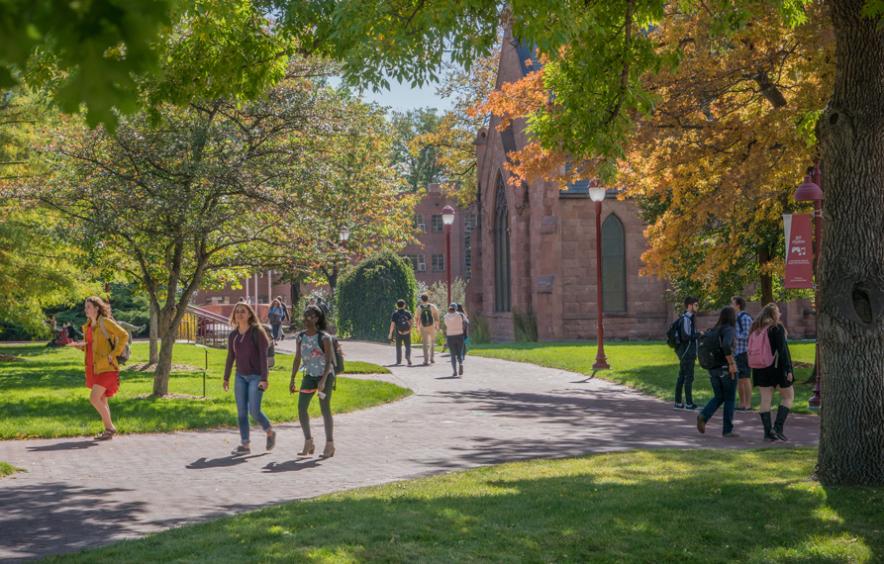About Work-Study
Work-study is a type of need-based financial aid that allows students to work on-campus to earn money to help pay for educational expenses. Only students who have work-study included in their financial aid offer can apply for a work-study position. Wages for these positions are primarily paid through funding from the U.S. Department of Education, with a small portion matched by the University.
To be eligible for a work-study position, a student must:
- Submit the FAFSA and meet general federal aid eligibility requirements
- Have it included in their financial aid offer and accept it in My4D
- Be enrolled at least half time (6 credits or more for undergraduates, 4 credits or more for graduate students)
Due to limited funding, not all students who would otherwise be eligible will be offered work-study. The amount a student is offered is the maximum amount they can earn for the academic year. Typical award amounts offered are:
- $2,500 for first-year undergraduates
- $3,000 for 2nd-, 3rd, and 4th-year undergraduates
- $5,000 for graduate students
Students who don't have work-study included in their financial aid offer may request to be added to the waitlist by sending an email to workstudy@du.edu.
Work-study employees are paid every two weeks for hours worked. Paychecks are not applied directly to the DU tuition bill—they are sent directly to the student via direct deposit.
Offices can hire as many students with work-study as they deem appropriate. However, many times there are more work-study positions available than there are students with work-study.
Additional information about this program is available in the work-study policy guide.











